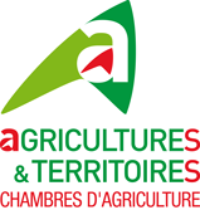Document type : article published in Le Monde (subscriber edition)
Author: Philippe Gagnebet
Preview: By creating an "Animal Environment and Abuse Unit", the Court of Appeal of Toulouse seeks to speed up the process of punishment and support those who commit such offences, which are on the increase.
On October 8, a truck driver from Malta was stopped on the A62 motorway, just outside Toulouse. Alerted by a veterinarian, the police and the French Departmental Directorate for the Protection of Populations discovered eleven horses on board suffering from dehydration and malnutrition. Some were limping. The driver, a farmer by profession, was taken into custody and admitted that he had come to buy these horses in France and acknowledged his "neglect". The next day, he was in court to receive a sentence based on his admission of guilt and was given a six-month suspended prison sentence and banned from transporting animals for three years. The horses were confiscated.
The case, which was well conducted, marked the first operation, in Haute-Garonne and in three other départements, to be carried out by the "Animal Environment and Abuse Unit", created a month earlier. This is a unique initiative in France. It was launched by the Toulouse Court of Appeal and has been led by the court's public prosecutor, Franck Rastoul.
"Society today is rightly demanding a more effective response to cases of animal abuse, particularly in the courts" says the magistrate. "Faster and more effective judicial responses will have to be provided" because, as revealed in a report by the public prosecutor's office, there has been a 30% increase in acts of animal abuse since 2016 in Toulouse. This is happening across the country and is reported through the work of associations who expose acts of cruelty towards domestic animals, voluntary abandonment and the keeping of protected or exotic species. In Toulouse, between January 1, 2020 and September 30, 90 legal actions have been begun, mainly for mistreatment.
One-day courses
"We want to change gear, increase levels of technical provision and skills and, above all, speed up the processing of these court actions," explains Mr. Rastoul. To do this, the Unit intends to base its work on three pillars: the seizure of animals - when the facts justify it -, their confiscation, and banning the owner from keeping an animal. The small team set up in Toulouse under the prosecutor, comprising a project manager and a legal assistant, relies above all on closer collaboration between associations, police officers, gendarmes, officers from the French Office of Biodiversity (OFB) and magistrates. [End of part available to non-subscribers]






